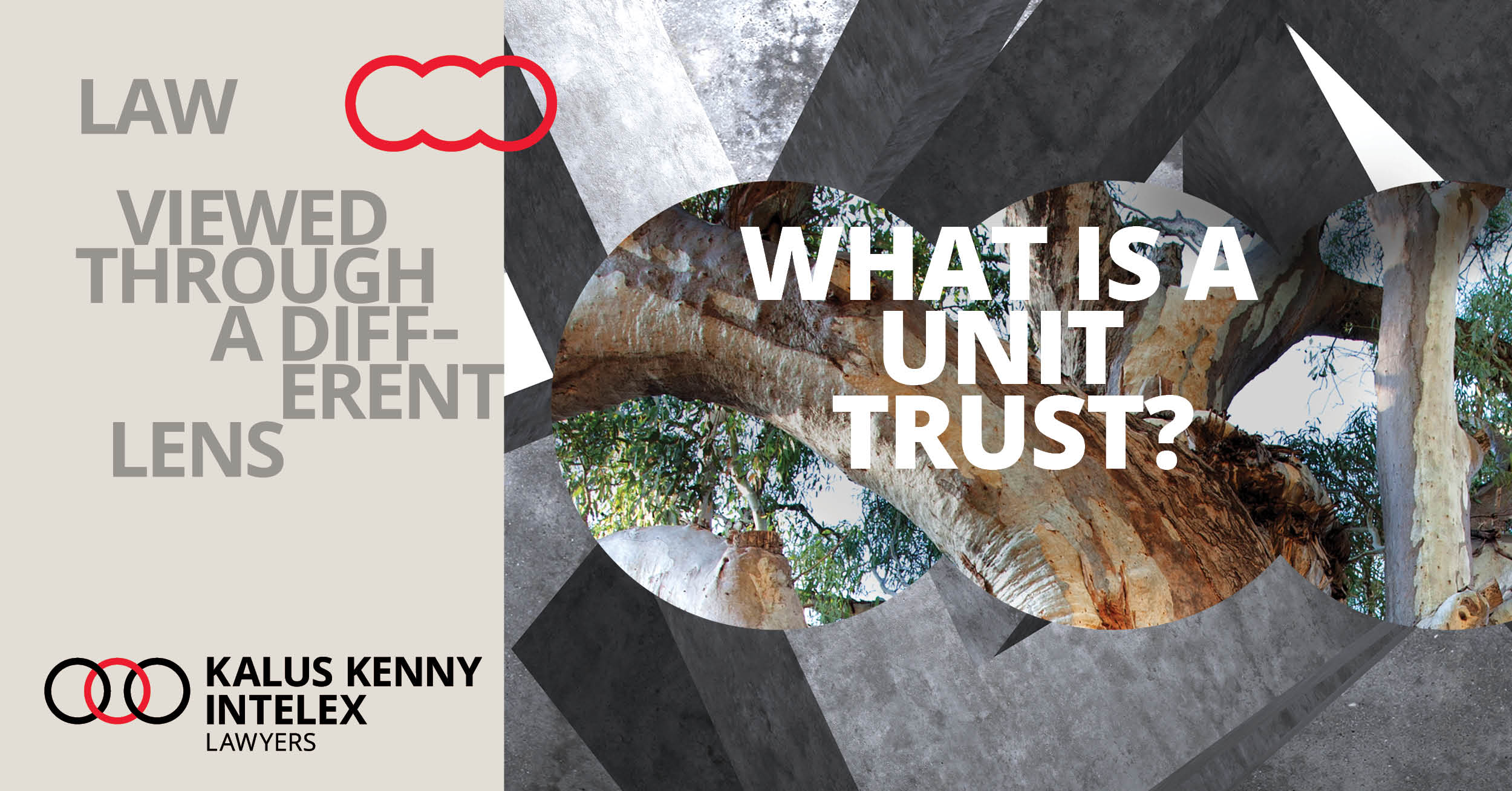There are many types of trusts commonly used for commercial dealings, asset protection, privacy, tax efficiency or for succession planning. The type of trust appropriate for you will depend on the type of transaction or asset you are dealing with. In this series, we explore three different types of trusts: a bare trust, a unit trust and a discretionary trust. This week, we explore unit trusts.
What is a Unit Trust?
A unit trust is a popular structure for investments such as property developments and other business ventures. In a unit trust, a “settlor” contributes a nominal amount to the unit trust which is then held by the “trustee” for the benefit of the “unitholders” in defined units in compliance with the terms of the trust deed. The trust deed will generally allow for the subscription of further units in the trust.
A unit trust is a useful structure in circumstances where one or more of the unitholders intend to sell or transfer their units and exit the trust structure. This type of structure allows for the continuation of the unit trust even when a unitholder wishes to exit.
Any taxable income or capital gain from the trust flows through to the unitholders in the proportions of their units.
A unit trust is generally an appropriate arrangement for unrelated parties who intend to combine their resources for an investment.
It is recommended to obtain legal and accounting advice before the establishment and during the administration of a unit trust to understand the complexities involved. Along with the trust deed, it is advisable to have a ‘unitholders agreement’ in place as it allows the unitholders to define their relationship with each other and obligations between them.
If you need advice on establishing or administering a unit trust, please contact Kimi Shah or Lisa George.



